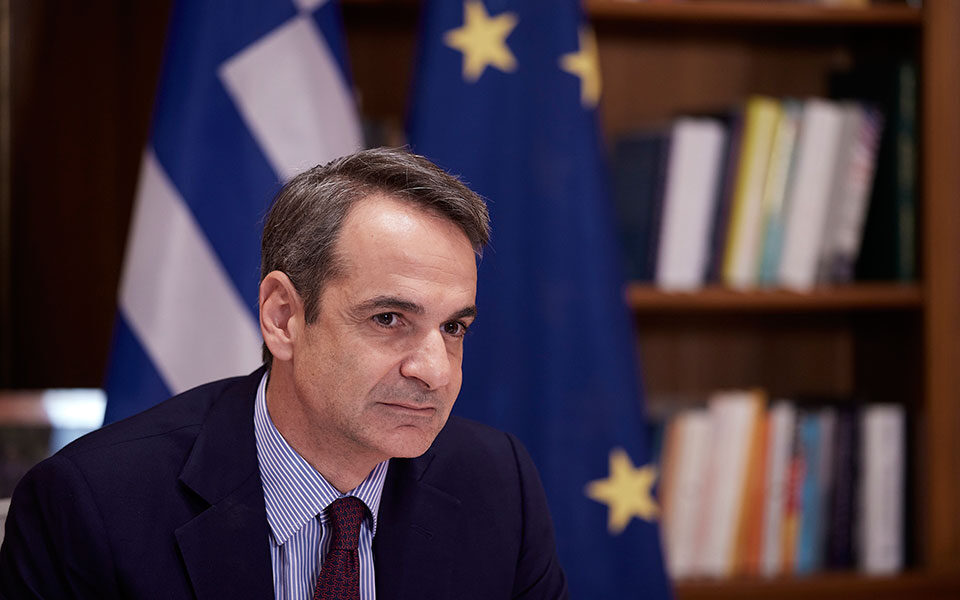Erdogan, Mitsotakis unlikely to meet in Prague
Both leaders to attend 44-country gathering in the Czech capital Thursday amid rising bilateral tensions

Prime Minister Kyriakos Mitsotakis is unlikely to have a private talk with Turkish President Recep Tayyip Erdogan during the European Political Community meeting in Prague on Thursday.
Turkey will attend the meeting as one of 17 countries invited in addition to the 27 European Union members at the inaugural meeting of this new body first proposed by French President Emmanuel Macron.
The meeting will start with an early afternoon plenary session, to be followed by roundtable discussions, and will conclude with an evening plenary session. In between, three and a half hours have been set aside for bilateral meetings, but a Greece-Turkey one is not expected to happen. Erdogan has repeatedly declared that he does not wish to meet Mitsotakis; in contrast, the Greek leader has said he is open to talks.
The Greek prime minister will take part in a panel on energy, the economy and climate change, along with German Chancellor Olaf Scholz, and the prime ministers of Belgium, Alexander De Croo, Bulgaria, Galab Donev, Ireland, Micheal Martin, Italy, Mario Draghi, Norway, Jonas Gahr Store, Portugal, Antonio Costa, and Serbia, Ana Brnabic. Erdogan will take part in a panel discussing security.
The Political Community meeting will be followed Friday by an informal European Council, where, according to the published agenda, leaders will discuss the war in Ukraine, the energy crisis and the resulting economic challenges. Mitsotakis also intends to brief the meeting on the Libyan-Turkish agreement allowing Turkey to search for hydrocarbons on Libyan soil and its maritime jurisdiction. It is the definition of this jurisdiction in a 2019 bilateral protocol that Greece, and many other countries, objects to.
Mitsotakis will find a receptive audience in its briefing: On Wednesday, Germany’s foreign ministry spokesman, Christopher Burger, said the recent Libyan agreement was made at the expense of Greece. “In all cases Greece is not bound by it and, in this sense, it has no legal effect,” he noted.
Athens considers the agreement could have implications on its sovereignty as it is based on the contested Turkish-Libyan memorandum of 2019, which delimits the two non-neighboring countries’ maritime jurisdiction areas and ignores the fact that Greece and Egypt stand in the way geographically.





